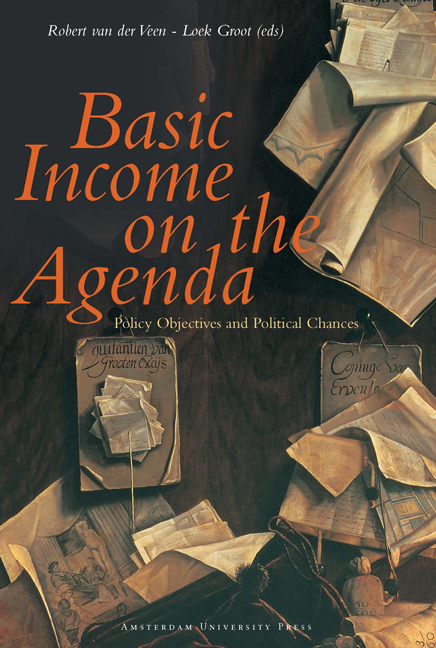From Concept to Green Paper: Putting Basic Income on the Agenda in Ireland
Published online by Cambridge University Press: 23 January 2021
Summary
A Recognized Failure?
The Irish social welfare system was designed to operate in a world which is no longer relevant today. This ‘Beveridge’ system can work well when:
– full employment (for men) is the norm
– women's labour force participation is low
– unemployment, when it occurs, is of short duration
– social welfare payments act simply as a transition mechanism to support people – during short-term illness or unemployment
– employment is usually full-time at relatively good pay rates
– jobs are permanent.
These were the basic assumptions which underpinned the social welfare system when it was originally designed. The end result is a complex and inadequate system which is now failing to meet the needs of the people trapped within it. Today, society is less homogenous than heretofore. We experience rapid technology change, increasing selfemployment, atypical work and fluctuating incomes. There is increasing complexity in household responsibilities and relationships.These need to be catered for by our system of taxation and income distribution. However, the existing tax and social welfare systems suffer from many disadvantages, which have been widely recognized, including:
– Unemployment traps: where net income when unemployed is higher or almost as high as net household income in work. Moreover, we have seen, over the past two decades, the ridiculous situation where unemployed people must do nothing and always keep themselves available for non-existent jobs, if they are to receive their social welfare payments. – Poverty traps: where an individual at work receives a pay increase, net household income either declines or rises by only a small amount.
– Its heavy emphasis on conditionality has contributed in large measure to the downgrading of areas of work for which payment is not made or received (e.g. work in the community, in the voluntary sector, in the home, etc.).
– Complexity: where citizens are unsure of the effects on household income of decisions regarding work, marriage, family size, etc.
– Policy inflexibility: it is difficult to modify the existing systems to increase the incomes of the poorest households (who do not have ‘proper’ jobs), without simultaneously decreasing work incentives.
These disadvantages are unintended consequences of the current tax and welfare system. Several changes were introduced over the years with a view to addressing particular difficulties.
- Type
- Chapter
- Information
- Basic Income on the AgendaPolicy Objectives and Political Chances, pp. 238 - 246Publisher: Amsterdam University PressPrint publication year: 2000
- 1
- Cited by



